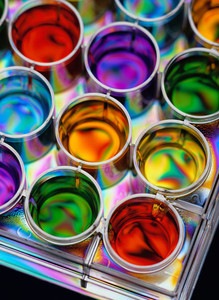US pharmaceutical companies are increasingly licensing high-quality drug assets from China to replenish pipelines amid a looming patent cliff. This strategic shift, involving billions in deal value, highlights China's growing role as a global innovation hub in biopharma.
Data has revealed that US drug companies are increasingly licensing molecules from China for potential new medicines. A Reuters analysis of GlobalData, highlights that in the first six months of 2025, US drug companies signed 14 deals potentially worth US$18.3 billion to license drugs in development from China-based companies; in 2024, more than 25 agreements were signed.
This trend is part of a larger surge in China-to-West pharmaceutical licensing. A Nature Reviews Drug Discovery Business Brief analysis reported that the 48 such deals in 2024 were worth a combined $8.4 billion. Notably, 31% of major pharmaceutical companies' innovative pipeline assets were in-licensed from China that year [1].
The article notes that the companies are ‘betting they can turn upfront payments of as little as US$80 million into multibillion-dollar treatments.’ As a number of medicines are due to lose patent protection by the end of the decade, US companies are unlikely to slow down these licencing activities as they aim to replenish pipelines and replace an estimated US$200 billion in medicines.
A licensing agreement allows one company to obtain the rights to develop, manufacture, and commercialize another company's pharmaceutical products or technologies. In return, the licensing company typically agrees to make future milestone payments based on specific development targets, helping to share or reduce the risks associated with product development.
US companies are turning to China because Chinese firms now offer high-quality assets at relatively lowcost compared to US assets. Additionally, any US government-imposed tariffs on the pharmaceutical sector would not apply to intellectual property.
Small-molecule drug products are most commonly licensed from China; however, there has been a shift toward novel biological treatments, such as targeted cancer therapies and first-in-class medicines. According to DealForma, at least US$3.15 billion was spent in 2024 on licensing or acquiring molecules from Chinese biotech firms [1]. Now, China's share of global drug development is almost 30%, while the US share of the world's R & D has declined to approximately 48%.
Recent licencing deals include:
- Pfizer spending US$1.25 billion upfront for the right to license an experimental cancer drug from China's 3SBio – a deal that could be worth up to US$6 billion if the drug succeeds.
- Regeneron Pharmaceuticals paying US$80 million upfront for an experimental obesity drug from China's Hansoh Pharmaceuticals in a deal potential worth US$2 billion.
In 2024, US-based drug developer Nuvation Bio acquired China’s AnHeart Therapeutics, gaining access to the company's experimental cancer drug taletrectinib, which was approved in the US in early June 2025. The company’s CEO, David Hung, noted that Nuvation sees its presence in China ‘…as an inside track toobtaining further assets, growing our company, and discovering new and better therapies for patients’.
The recent Nature Reviews Business Brief analysis reports that pharmaceutical licensing deals from Chinese to Western companies in 2024 reveals a surge worth US$8.4 billion, with 31% of major pharmaceutical companies' innovative pipeline assets being in-licensed from China.
Related articles
Chinese biosimilars go global: growth, partnerships, and challenges
International biosimilars players expanding their presence in China
References
1. GaBI Online - Generics and Biosimilars Initiative. China-to-West pharma licensing deals surge in 2024 amid innovation push [www.gabionline.net]. Mol, Belgium: Pro Pharma Communications International; [cited 2025 Sep 17]. Available from: www.gabionline.net/reports/china-to-west-pharma-licensing-deals-surge-in-2024-amid-innovation-push
2. GaBI Online - Generics and Biosimilars Initiative. Biosimilars thrive as China’s biotech industry gains momentum [www.gabionline.net]. Mol, Belgium: Pro Pharma Communications International; [cited 2025 Sep 17]. Available from: www.gabionline.net/pharma-news/biosimilars-thrive-as-china-s-biotech-industry-gains-momentum
Permission granted to reproduce for personal and non-commercial use only. All other reproduction, copy or reprinting of all or part of any ‘Content’ found on this website is strictly prohibited without the prior consent of the publisher. Contact the publisher to obtain permission before redistributing.
Copyright – Unless otherwise stated all contents of this website are © 2025 Pro Pharma Communications International. All Rights Reserved.








 0
0











Post your comment